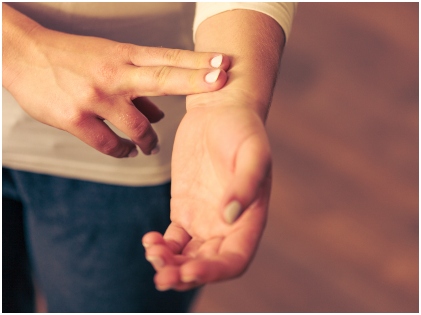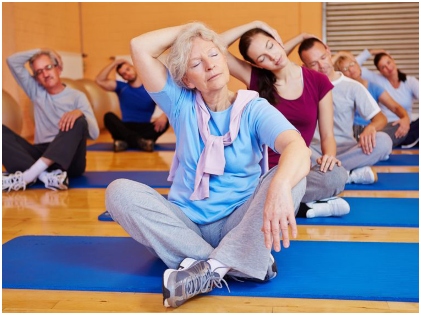How To Self-Assess Your Fitness Level
Fitness is something that’s beyond the popular perception of having toned muscles and being able to run fast and lift weights. There are some other ways to be fit that people hardly give a try. Here are a few effective ways to test and measure your fitness level and your health condition over.
To self-assess your fitness level, you don’t need to be a gym rat or consult some fitness guru. Instead, you can just try these simple tricks and assess your fitness at your home or workplace. Simply take a note of your test results and use them as guidelines for improving in the later stages.
To Analyze Aerobic Fitness – Resting Adult Heart Rate
 To track your fitness progress, counting the resting adult heart rate is considered to be quite an effective way. The RHR (the acronym for Resting Adult Rate) is actually denoted by the number of times the heart beats per minute while you are resting. A few athletes are said to have recorded a resting adult heart rate of 40. In order to measure your resting adult heart rate, you need to place two fingers either on your neck or on your wrist. Count heartbeats you can feel over a duration of 60 seconds. You start from zero with the first beat. If the number of beats is 60 or less, your aerobic fitness is good. If it ranges from 61 to 80, you have an average aerobic fitness. In case if it lies between 81 and 100, it’s more or less acceptable. However, if the number of beats is recorded at 101 or more, you need to sit up and take serious account of it.
To track your fitness progress, counting the resting adult heart rate is considered to be quite an effective way. The RHR (the acronym for Resting Adult Rate) is actually denoted by the number of times the heart beats per minute while you are resting. A few athletes are said to have recorded a resting adult heart rate of 40. In order to measure your resting adult heart rate, you need to place two fingers either on your neck or on your wrist. Count heartbeats you can feel over a duration of 60 seconds. You start from zero with the first beat. If the number of beats is 60 or less, your aerobic fitness is good. If it ranges from 61 to 80, you have an average aerobic fitness. In case if it lies between 81 and 100, it’s more or less acceptable. However, if the number of beats is recorded at 101 or more, you need to sit up and take serious account of it.
To Analyze Muscular Endurance of Upper Body – Push-Ups
 To assess the strength of your upper body, push-ups are considered to be effective indicators. They also help you keep track of how far you have progressed while going through muscle building exercises. This particular test helps you to measure your muscular endurance. Results will be based on how many you can perform over a fixed duration. Contrary to the popular perception, the entire test does not concern how heavy a weight you can lift. Push-ups are a great challenge for your chest, upper arm muscles, and shoulder. To increase the number of pushups, you are required to have core stability. For men and women, 30 and 25 push-ups respectively are considered to be excellent. From 20 to 29 for men and 15 to 19 for women, the core stability is considered to be average. 19 or less for men and 14 or less for women imply that there is a lack of core stability.
To assess the strength of your upper body, push-ups are considered to be effective indicators. They also help you keep track of how far you have progressed while going through muscle building exercises. This particular test helps you to measure your muscular endurance. Results will be based on how many you can perform over a fixed duration. Contrary to the popular perception, the entire test does not concern how heavy a weight you can lift. Push-ups are a great challenge for your chest, upper arm muscles, and shoulder. To increase the number of pushups, you are required to have core stability. For men and women, 30 and 25 push-ups respectively are considered to be excellent. From 20 to 29 for men and 15 to 19 for women, the core stability is considered to be average. 19 or less for men and 14 or less for women imply that there is a lack of core stability.
To Analyze Neck Flexibility – Head Turning
 If you want to test your neck’s flexibility, you need to go through more mobilizing exercises. The neck is considered to be the most mobile portion of the spine. In case the neck turns tight on a particular side just because you favor that side while working, carrying a heavy bag, or even using your phone, stretching exercises can be really beneficial. Sit up straight and look ahead as much as you can. Ask someone to give you support from behind while you rotate your head to the left. Ask them which portion of your profile is visible to them. Come back to the center slowly and repeat the process when your head turns towards the left direction. If your neck is more flexible on one side than the other, you are advised to include various mobilizing exercises into your daily fitness regime in order to increase your flexibility.
If you want to test your neck’s flexibility, you need to go through more mobilizing exercises. The neck is considered to be the most mobile portion of the spine. In case the neck turns tight on a particular side just because you favor that side while working, carrying a heavy bag, or even using your phone, stretching exercises can be really beneficial. Sit up straight and look ahead as much as you can. Ask someone to give you support from behind while you rotate your head to the left. Ask them which portion of your profile is visible to them. Come back to the center slowly and repeat the process when your head turns towards the left direction. If your neck is more flexible on one side than the other, you are advised to include various mobilizing exercises into your daily fitness regime in order to increase your flexibility.
To Analyze Cardio Capacity – Walk/Run For 12 Minutes
 If you can run for 1.46 miles at a stretch for 12 minutes, you have an excellent cardio capacity. In case you are able to run within a range of 1.33 to 1.45 miles, the result can be considered as good. For 1.26 to 1.33 miles, it’s more or less fair. However, if you are below this, you seriously need to take some action. You are having a poor cardio capacity.
If you can run for 1.46 miles at a stretch for 12 minutes, you have an excellent cardio capacity. In case you are able to run within a range of 1.33 to 1.45 miles, the result can be considered as good. For 1.26 to 1.33 miles, it’s more or less fair. However, if you are below this, you seriously need to take some action. You are having a poor cardio capacity.
Fitness is not only about lifting heavy weights or undergoing a strict workout regimen. There are a few simple steps through which you can be as fit as anyone who is hitting a gym with the aim of having a great body. Often, simple things in life give you the desired results.
